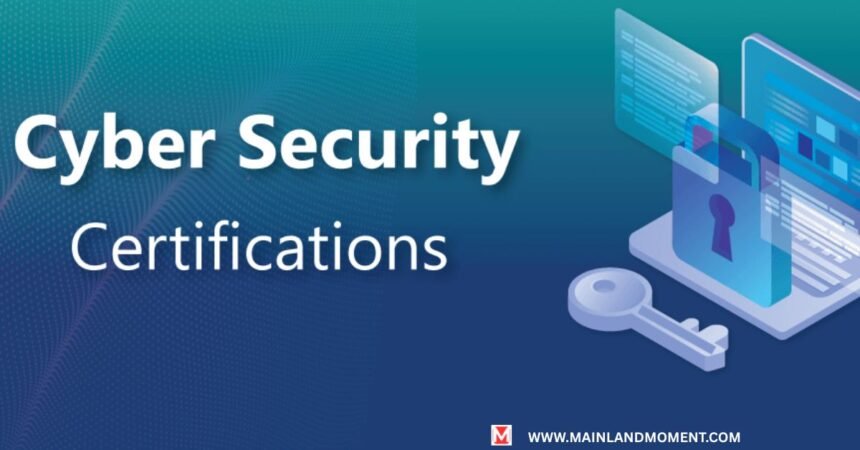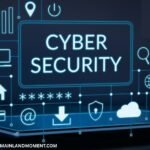Ultimate Guide to Cyber Security Certifications in 2025
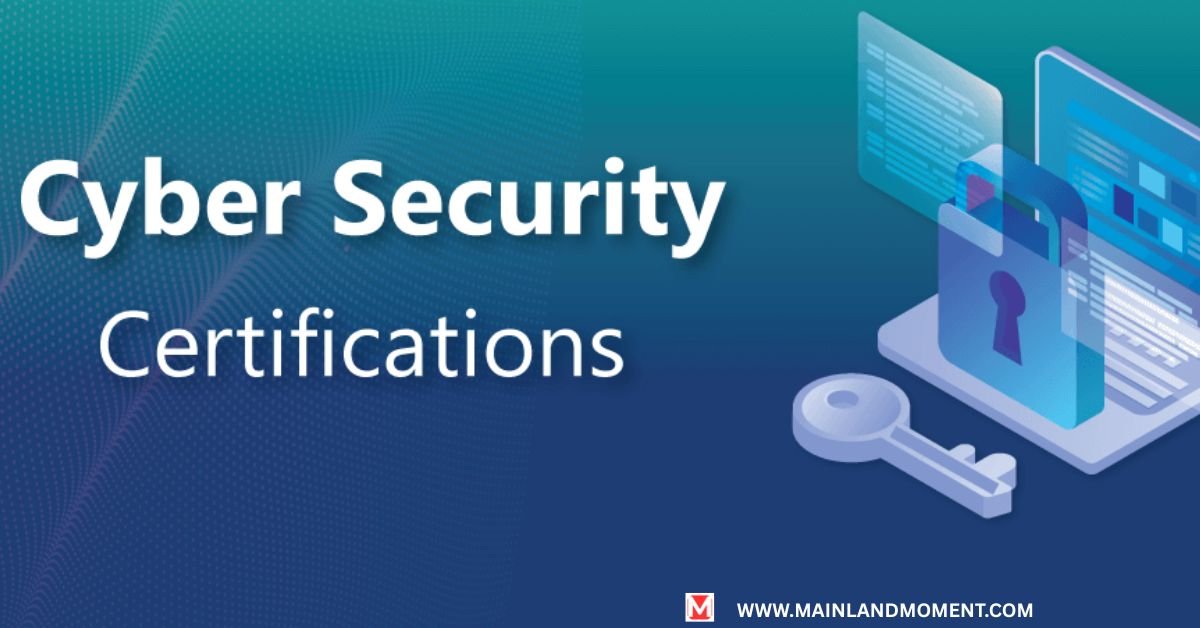
Cyber security certifications have emerged as the gold standard in the technology job market, fueling pathways to well-paying careers and addressing the global deficit of qualified security professionals. In an ever-evolving arena of daily threats, and a quickly growing skills gap, these professional credentials are a trusted validation of your knowledge, expertise, and commitment to protecting valuable digital assets.
This information-packed guide outlines the most useful cyber security certifications in 2025 and discusses the credentials that will help you get the most from your career potential, earning potential, and more, and help you to stand out in this growing field. Regardless of whether you’re just starting out in the area of cybersecurity, or trying to advance to senior roles, it’s important to understand the world of certifications and how to navigate it for effective career planning in information security.
Unlock Your Cyber Defense Career: Top Certifications to Skyrocket Your Skills
The cybersecurity sector is experiencing an incredible talent shortage, and it is expected that by the end of 2025 there will be over 3.5 million unfilled positions globally. With this level of shortage, never before has there been an enormous opportunity for those with the correct cyber security certifications.
But where should you start? Let’s cut through the confusion and focus on entry-level cyber security certifications that deliver real value:
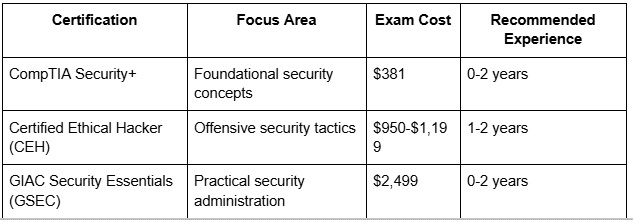
"CompTIA Security+ gave me the fundamentals I needed to land my first cybersecurity role. It's the perfect starting point for anyone serious about a cyber defense career." - Michael Chen, Security Analyst at Fortinet
These Cybersecurity certifications are the foundational stepping stone in launching your information security career. Each one is a key to a different door, but they all show your commitment to continued professional cybersecurity training.
Fortify Your Future: Must-Have Cybersecurity Certs for 2025 and Beyond
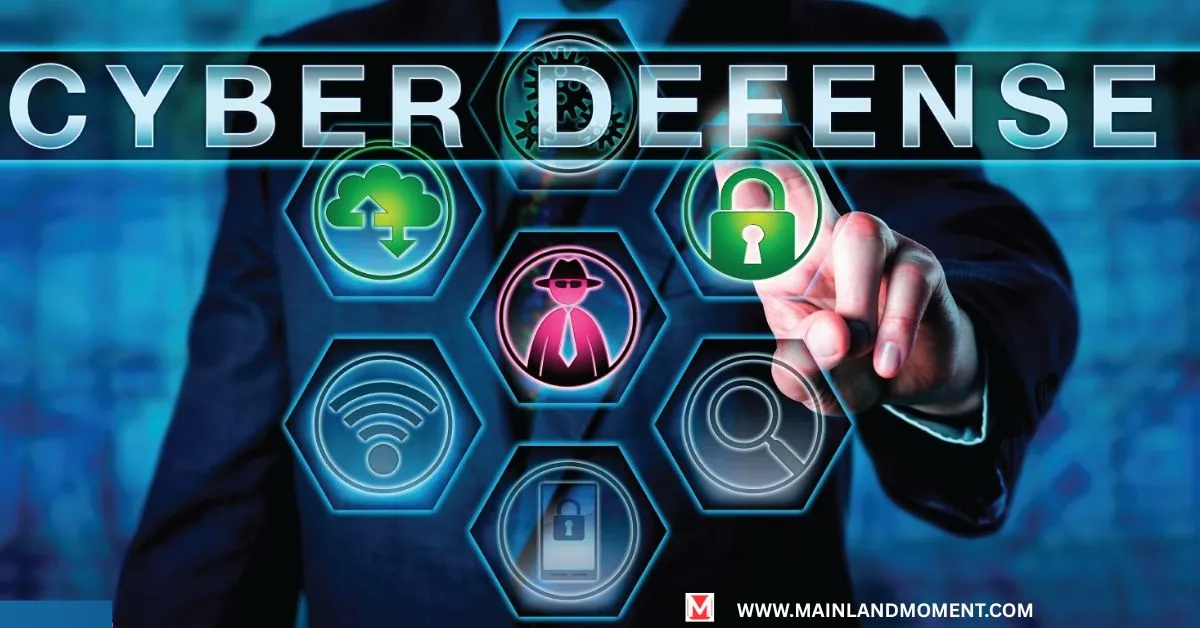
The cybersecurity environment is constantly changing, so it is essential to pursue cyber security certifications that are likely to be useful for years ahead. The following credentials will be of great significance into 2025 and beyond based on industry trends and evolving threats:
The CISSP (Certified Information Systems Security Professional) continues to be recognized as the gold standard for security professionals with 5+ years of experience. For those aiming at security management positions, CISM (Certified Information Security Manager) provides the perfect credential. Cloud Security Certifications like AWS Certified Security, Azure Security Engineer, or GCP Professional Cloud Security Engineer are seeing explosive demand. The OSCP (Offensive Security Certified Professional) remains the hands-on penetration testing certification employers respect most.
What makes these IT security credentials future-proof? They emphasize adaptable thinking and practical skills rather than merely memorizing information. While technologies constantly change, the security mindset these professional security qualifications develop remains invaluable.
From Novice to Ninja: The Ultimate Cybersecurity Certifications Roadmap
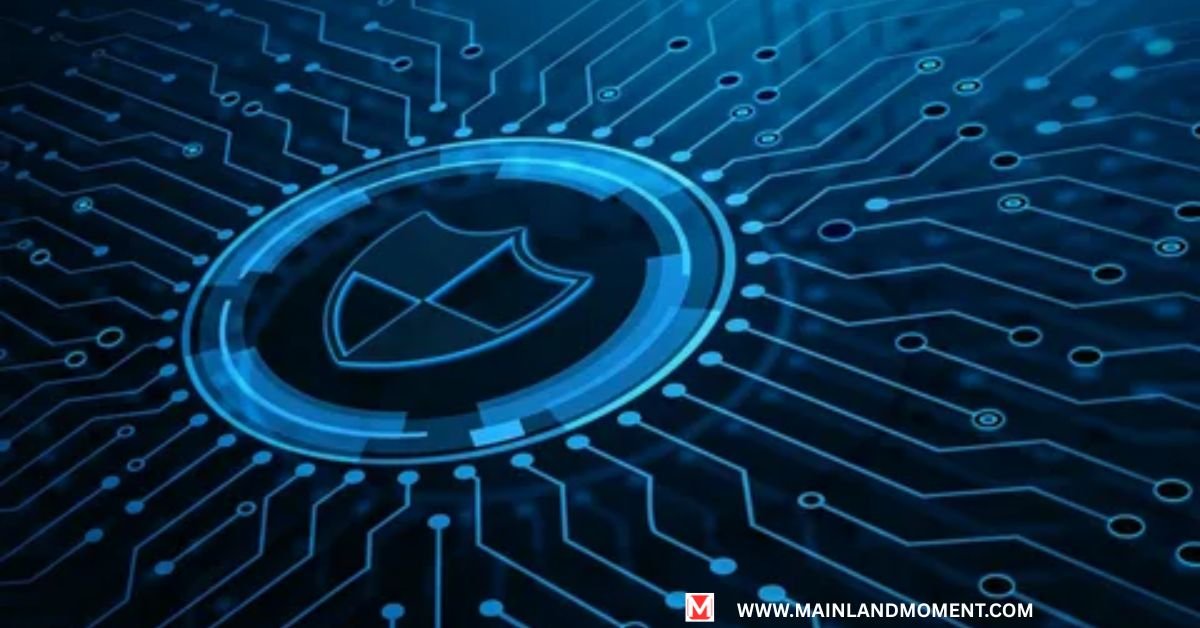
Everyone’s journey through cyber security certifications looks different, but clear pathways have emerged based on specialization. Here’s how to progress from beginner to expert with strategic cybersecurity skills development:
Security Operations Path
- CompTIA Security+
- GIAC Certified Incident Handler (GCIH)
- Certified SOC Analyst (CSA)
- GIAC Certified Detection Engineer (GCDE)
Security Architecture Path
- CompTIA Security+
- CompTIA CySA+
- CISSP
- SABSA Chartered Security Architect
Offensive Security Path
- CompTIA Security+
- eJPT (eLearnSecurity Junior Penetration Tester)
- OSCP (Offensive Security Certified Professional)
- OSCE (Offensive Security Certified Expert)
The focus should not be on an uncoordinated collection of cybersecurity certifications, but a thoughtful scheme that reflects a progressive mastery in your preferred domain of specialization. This method of cyber career development guarantees all of your certifications build upon each other in a logical manner.
Guardians of the Digital Realm: Certifications That Define Cyber Expertise
Certain cyber security certifications have become synonymous with specialized security domains. These are the credentials that mark true guardians of digital assets:
For Digital Forensics: GCFA (GIAC Certified Forensic Analyst) and EnCE (EnCase Certified Examiner) stand as the industry standards.
For Cloud Security: CCSP (Certified Cloud Security Professional) and AWS Certified Security – Specialty validate expertise in securing cloud environments.
For Security Management: CISM (Certified Information Security Manager) and CGEIT (Certified in the Governance of Enterprise IT) prepare you for leadership roles.
For Application Security: CSSLP (Certified Secure Software Lifecycle Professional) and GIAC Web Application Penetration Tester (GWAPT) demonstrate specialized coding security knowledge.
Each represents mastery of a critical security domain within cyber defense education. While generalists have their place, these specialized cyber security certifications demonstrate your commitment to excellence in particular security disciplines.
Case Study: How Specialized Certifications Transformed a Career
Sarah Thompson, a network admin with five years of experience, felt that her career stagnated. As she researched the best cybersecurity certifications for career advancement, she identified GCIH and chose to focus on incident response. In six months after certification, Sarah:
- She received three job offers with salary increases of 30-45%
- She transitioned from general IT to a dedicated security role
- Her company created a new incident response team with her as lead
"Specializing in incident response through targeted certifications completely transformed my career trajectory," Sarah explains. "The GCIH certification opened doors I didn't even know existed."
Level Up Your Cyber Game: Certifications That Employers Can't Ignore
Let’s talk return on investment. According to the latest compensation surveys, these cyber security certifications correlate with the highest salary increases:
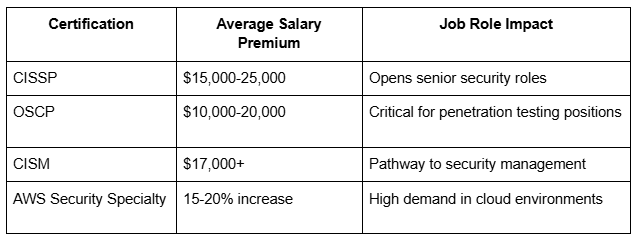
Beyond salary, certain certifications dramatically improve your visibility to recruiters. LinkedIn data reveals that profiles featuring CISSP receive 40% more inquiries from recruiters compared to uncertified security professionals.
The cyber security certifications employers struggle to fill? Cloud security specialists, zero trust architects, and security automation engineers top the list for 2025. Focusing your cybersecurity training in these areas can position you for maximum market value.
Crack the Code to Success: Cybersecurity Certs That Open Elite Doors
Some cyber security certifications do more than improve your resume—they get you into rooms others can’t access:
The OSCP has become the unofficial barrier to entry for many elite security teams through its rigorous hands-on ethical hacking challenges. The GSE (GIAC Security Expert) marks its holders as true security elite, with only about 200 people worldwide holding this prestigious certification. CREST Certifications prove particularly valuable in financial services and critical infrastructure sectors. For enterprise architecture roles, the CISSP-ISSAP (the architecture concentration of CISSP) opens doors that remain closed to others.
What makes these certifications for cyber professionals so prestigious? They’re either exceptionally difficult to obtain (like the GSE with its multi-day, hands-on testing) or they require extensive verified experience (like the CISSP and its concentrations).
For those aiming at government or defense contracting work, certain cyber security certifications align with DoD 8570 requirements and are practically mandatory for cleared security roles.
Essential Certifications for Cyber Warriors
Different cybersecurity career paths demand different certification strategies. Let’s examine the must-have cyber defense qualifications for specific security careers:
For Security Analysts: CompTIA Security+, the GIAC Certified Incident Handler (GCIH), and the Splunk Core Certified User/Power User form the basic kit for threat monitoring and incident response.
For Penetration Testers: The trinity of CEH (Certified Ethical Hacker), OSCP (Offensive Security Certified Professional), and GPEN (GIAC Penetration Tester) establishes credibility in offensive security.
For Security Engineers: A combination of CompTIA Security+, Cisco CCNP Security, and cloud-specific certifications (AWS/Azure/GCP) creates a powerful technical foundation.
For Security Leaders (CISO track): CISSP establishes broad security knowledge, while CISM demonstrates management capability, and CGEIT or CRISC validates risk management expertise.
"The smartest approach to certification planning is talking to people who already have your dream job. Their insights about which top cyber security courses made the difference in their careers are pure gold." - Dr. Andrea Martinez, Cybersecurity Professor at Georgetown
It combines the core knowledge in your area with the plethora of specialized knowledge pertaining to effectiveness by IT security training programs. Therefore, the more you can select the most relevant cyber security certifications to your own objectives, the more efficiencies there are in learning and the higher the market value of your qualifications.
Master the Cyber Frontier: Certifications to Dominate the Security Landscape
Looking ahead, these emerging cyber security certifications represent the cutting edge of the industry:
Zero Trust Architecture
- Certified Zero Trust Architect
- SANS GIAC Cloud Security Automation (GCSA)
DevSecOps
- DevSecOps Foundation Certification
- Certified DevSecOps Professional (CDP)
AI Security
- AISS (Artificial Intelligence Security Specialist)
- Certified AI Security Professional
OT/IoT Security
- Global Industrial Cyber Security Professional (GICSP)
- CSSA (Certified SCADA Security Architect)
Although many of the newer courses in network security cannot carry weight the same way as much-established credentials like CISSP, employers know that you are forward thinking and adaptable to the changing threat landscape.
Practical Tips for Certification Success
First of all, make a certification roadmap that goes hand in hand with your career objectives. Make a study schedule that is real and in accordance with your work-life balance for consistent progress. Many successful candidates join study groups or communities to seek support and share insights regarding the specific certification for which they are preparing.
Gathering different resources such as books, videos, labs, and practice tests exposes one to various styles learning. Hands-on labs further entrench the theoretical concepts making them more practical-the skills that employers will appreciate. When one perceives it as being ready, setting up an exam date brings concrete deadline to preparation-this commitment device helps keep one from straying. Finally, remember to supplement your continued education to maintain your certifications; keep credentials updated.
In the cybersecurity arena, advancement comes to those who keep themselves updated with cutting-edge knowledge and contemporary skills. By balancing basic cyber security certifications with more advanced specialties, you position yourself not just for present-day jobs but for leadership roles tomorrow.
Remember: The most valuable certification strategy isn’t about collecting badges it is about building a coherent skill set that solves real business security challenges. With the right cyber security certifications, you’ll not only advance your career but help protect organizations from increasingly sophisticated threats.
Conclusion
When a person hears ‘certifications’ for cybersecurity, they know that the person has equipped him or herself against some threats, a fast-moving field of security and rapid changes. Here’s a reflection of all the most popular values in terms of every stage of career or track of specialization, entry to elite statuses, from CompTIA Security+ all the way up to CISSP and OSCP.
All the recommendations that effective certification employs may not be cramming every credential known to mankind, but taking a portfolio approach, wherein the accumulated expert certifications cohere in close relevance to each other to the career goals one settles for. If possible plan to do cyber cybersecurity certification, consequent to previous gains-with an eye to opening yet another door.

